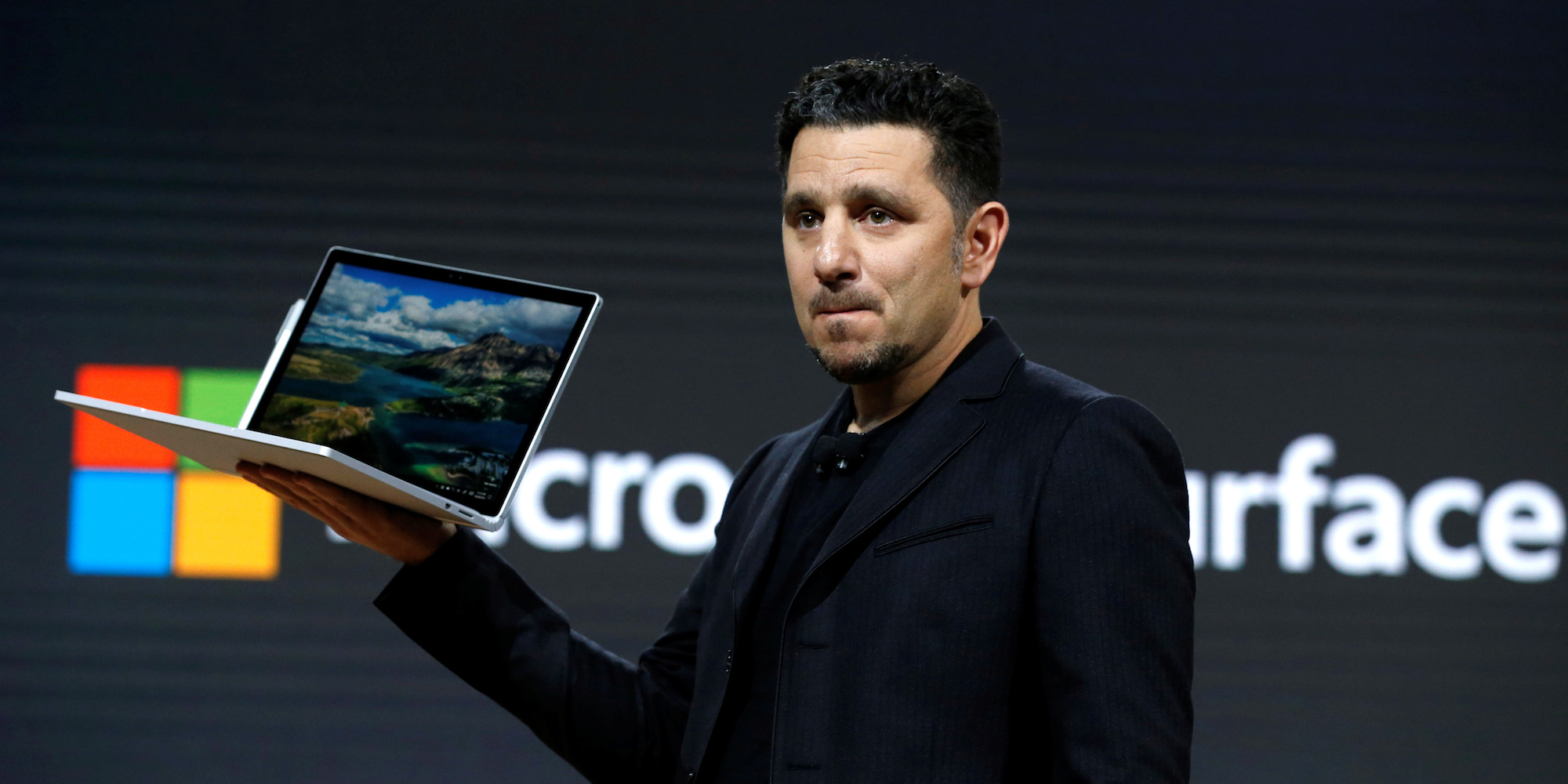- Microsoft’s latest quarterly earnings showed that Surface revenues were $1.3 billion for the holiday shopping quarter – relatively flat from the same time period in 2016.
- Microsoft says that they sold fewer Surfaces overall from a year ago, but that they sold more of the expensive, premium models, making up the difference.
- This is despite the fact that Microsoft launched several new Surface PCs and tablets in 2017.
- Microsoft also reported that phone revenue was “immaterial,” and down $204 million from last year.
Microsoft reported a solid quarter on Wednesday afternoon, beating on the top and bottom lines – so long as you don’t include a one-time charge of $13.8 billion related to the recently-passed tax reform bill.
Things are looking less rosy over at Microsoft’s hardware businesses, however.
First off, Microsoft reported that revenue in the Surface division was $1.3 billion for the 2017 holiday shopping quarter – a 1% increase from the same period in 2016.
In a slide deck for investors, Microsoft says that the minor increase in Surface revenue was “driven by a higher mix of premium devices sold, offset in part by a lower volume of devices sold.” This indicates that overall Surface sales were down, but that they sold more of the pricier, premium machines in the line, like the $1,500 Surface Book 2 laptop.
In 2017, Microsoft revamped much of the Surface lineup, launching a refreshed Surface Pro tablet, the updated Surface Book 2, and the all-new Surface Laptop. In December 2016, too, Microsoft introduced the Surface Studio PC. However, it seems like these new products didn't necessarily end up under a lot of Christmas trees.
"I was a bit surprised to see Surface was flat given the product refresh and the addition of the 15" Surface Book," Patrick Moorhead, principal analyst with Moor Insights & Strategy, told Business Insider.
Moorhead says that Microsoft's premium price point may actually be hurting its chances against other Windows PC manufacturers: "Microsoft plays in the highest price points while the other Windows guys play at all price points."
One thing that may have hampered the growth of Surface was Consumer Reports pulling its recommendation for the entire product line, citing concerns with the reliability of the hardware.
Furthermore, Microsoft's phone business continued to drag down the company's More Personal Computing segment. Microsoft reported "immaterial" phone revenue, representing a decline of $204 million in revenue from the year-ago-period. And it can't claim another $1.8 billion tax write-off related to the phone business, like it did last year.
Microsoft's biggest fans are already concerned that the company will pull the plug on the Surface business, as it fails to show sustained growth. Results like this are just fuel for that particular rumor mill.

